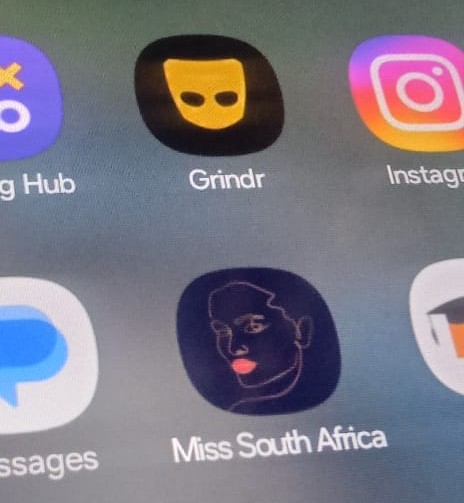By Buhle Dlamini
What was meant to be a steamy night turned into a nightmare for a Durban University of Technology (DUT) student who was robbed after meeting someone on a dating app.
Narrating his recent ordeal, Sanele Mhlongo, 21, said he matched with someone on Grindr, a dating app primarily used by the LGBTQI+ community, and agreed to visit the man at his home.
“His profile was full of his pictures, and he chatted very well; he made it easy for me to trust him,” Mhlongo explained.
However, on the day of the meetup, Mhlongo discovered that the “home” was actually a guest house. While admiring the surroundings, three other men wearing balaclavas entered the room. They threatened him, warning him not to scream or call for help if he wanted to stay alive.
“I was shocked and terrified…but even more shocked when I realised that the man I was meeting was working with them,” he said. The men took his phone and about R1 500 in cash.
In what appears to be a pattern of similar scams, Mhlongo said the attackers forced him to strip naked and, while recording a video, forcing him to falsely confess to attempting to rape a child.
“I did all of this fearing for my life,” he said quietly.
After the assault, the men released him but warned that if he reported the incident, they would post the video online.
“I constantly live in fear that my disturbing video might be shared any day,” Mhlongo said. “I didn’t report it because I felt ashamed and embarrassed. I don’t trust anyone anymore.”
Speaking to Credible Source, Berea Police Station spokesperson Nokuthula Dlamini urged members of the public to remain vigilant when using dating apps.
“People should be very careful — not everyone online is who they say they are,” Dlamini said. She stressed the importance of reporting such crimes immediately, even if victims feel ashamed or afraid.
CLICK HERE TO READ MORE ABOUT SIMILAR INCIDENTS
The DUT LGBTQIA+ Rainbow Alliance also expressed concern over the incident and the growing trend of scams targeting gay men through dating platforms.
“We are deeply concerned to hear of a DUT student being scammed on Grindr,” said Sandiseni Madela, deputy chairperson of the Alliance. “It is important to prioritise your safety and be cautious when interacting with strangers online. We will continue to advocate for a safer and more inclusive community for all students.”
Mhlongo’s experience echoes a growing pattern of Grindr-related crimes reported across South Africa in recent years. In 2023, international news agency Reuters reported a string of robberies and assaults linked to Grindr meetups, particularly in Johannesburg, Durban, and Pretoria. Victims were often lured to private residences or guest houses, then robbed, beaten, or blackmailed with compromising videos.
In a similar incident, a Johannesburg student was lured by seven men to a meeting via Grindr. The men allegedly held him hostage and brutally beat him. Mamba Online reported that the alleged kidnappers sent graphic photographs of the victim to his family. In one image, the young man appeared with blood in his mouth, a knife pressed against his neck, and wearing only a white vest. The attackers reportedly demanded a ransom of R30 000, threatening to post the images on social media if the family did not pay.
At the time, a Grindr spokesperson told Reuters that the company was “aware of the deeply troubling situation” in South Africa and was working to enhance user safety. The app now includes video call verification features and in-app safety tips warning users to meet only in public places.
Despite these efforts, LGBTQIA+ advocacy groups say that blackmail and extortion targeting queer men remain underreported due to stigma, shame, and fear of being outed.
Cybersecurity experts and community advocates advise users of dating apps to avoid sharing personal or financial information with strangers, always meet in public places for the first time, inform a trusted friend of meeting details, and use video chat features to confirm a person’s identity before meeting.

